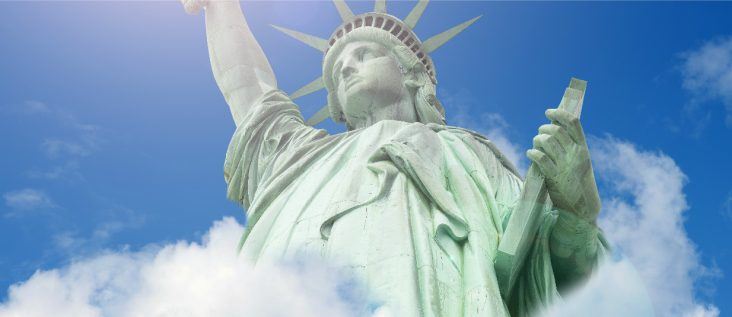For state’s Libertarians, 2016 disappointing despite gains
by November 18, 2016 10:52 am 197 views

Arkansas Libertarians knew they weren’t going to win any big races this election cycle. But with two experienced governors on their presidential ticket and the major parties nominating polarizing candidates, they did have a more realistic goal: win at least 3% of the vote in the presidential race and therefore avoid having to collect 10,000 signatures to qualify for the 2018 ballot.
It didn’t happen. The party’s presidential candidate, former New Mexico Governor Gary Johnson, fell short with 2.63%.
That’s an improvement from 2012, when Johnson won 1.52% of the vote. His vote total rose from 16,276 that year to 29,611 this year. If the party’s gubernatorial candidate wins 3% in 2018, it won’t have to collect signatures in 2020.
Frank Gilbert, the party’s U.S. Senate candidate, said members of the party are more discouraged than encouraged.
“We got our hopes high, and they got dashed,” he said.
Gilbert pointed out that the party “inched up” in all of the major races, and the party’s chairman, Dr. Michael Pakko, a UALR economist, said it had made progress. Gilbert managed 3.98% with 43,587 votes, about twice the 2.03% won by Nathan LaFrance in the 2014 Senate race, and more than twice the 1.92% Gilbert won running for governor that year. The party did lose its only incumbent officeholder, a constable defeated by a Republican.
By not winning 3% of the vote, the party will again have to qualify for the ballot in 2018, a process that Pakko said required six months of work as well as about $33,000 in costs this cycle. Because the primary was moved up to March 1, a state law required the party to select its candidates at the end of 2015. Pakko said the party will try to change the state’s law defining a political party in the 2017 legislative session while working toward the 2018 election.
Pakko said the performance of the candidate at the top of the ticket should not be the only measuring stick for ballot access. Despite being considered a “new” party under the law, Libertarians fielded a candidate in all four congressional races, while the Democrats only contested the 2nd District. The party was also the only competition in eight of the 34 contested state House races.
“There really isn’t a glut of candidates,” he said. “We don’t have too many candidates on the ballot in Arkansas.”
He said the party is already looking for candidates for 2018 and that several of this year’s candidates have expressed an interest in running.
At one point, Johnson seemed to have some momentum in the presidential race – enough that he began receiving the type of scrutiny usually afforded only the major party candidates. The scrutiny included a well-publicized gaffe where he seemed unfamiliar with the besieged Syrian town of Aleppo.
That scrutiny, said Pakko, represented progress.
“There was a lot of things in previous elections, I suppose, that Libertarian candidates could have been criticized for, but no one heard it, so it didn’t really matter, I guess,” he said.
He said the cause of Johnson’s drop in the polls was more about the “circus” involving the two major party candidates. People who would have preferred to make a statement or even to see Johnson elected fell victim to what Pakko called “wasted vote syndrome” where failing to vote for one major party candidate is seen as helping the other win.
Gilbert said Johnson was a good candidate, but he couldn’t overcome the fear Republicans and Democrats created of each other. Even until the end of the election, friends were accusing him of helping either Clinton or Trump by being a third party voter.
“You could feel the support (for Johnson) ebbing as people were just desperately afraid of the future of the country if one of those other two were elected. … And it’s hard to convince people when there’s that much emotion involved and that much fear, and so many people are saying this is the most important election of our lifetimes,” he said. “And we hear that every four years, and the republic is strong and carries on regardless of the moron we elect, and it would have again this time, and will again this time.”
Johnson and his running mate, former Massachusetts Gov. William Weld, are not doctrinaire Libertarians who support every tenet of the party’s small government platform. During the next election, party members will have to decide if they should choose a more true-blue Libertarian. Pakko said that, in hindsight, the electorate was in the mood for dramatic change and might have responded better to a more revolutionary candidate.
“There’s an awful lot of Libertarians who are disappointed in the purity of the message, the quality of the message,” he said. “A message doesn’t matter if it doesn’t get out there, but at the same time, if we’re misleading people as to what Libertarianism is all about, then we’re not making progress, either.”
Gilbert, who said he is a doctrinaire Libertarian aside from his opposition to abortion, said he hopes the party continues to nominate electable candidates.
“Politics remains an effort to do the possible, and it is impossible at this time to get a significant percentage of the U.S. electorate to vote for a doctrinaire Libertarian,” he said.
Gilbert, who said he hopes to campaign for a down-ballot position in 2018, said the party must practice practical politics, including raising enough money to run a credible campaign, and he thinks enough Libertarians agree with him.
“If we as a party want to advance as a party, then we’re going to have to do things that are distasteful to us. … If we’re not willing to do that and we’re not willing to play the deal that’s before us, then we’re a debating society,” he said.
